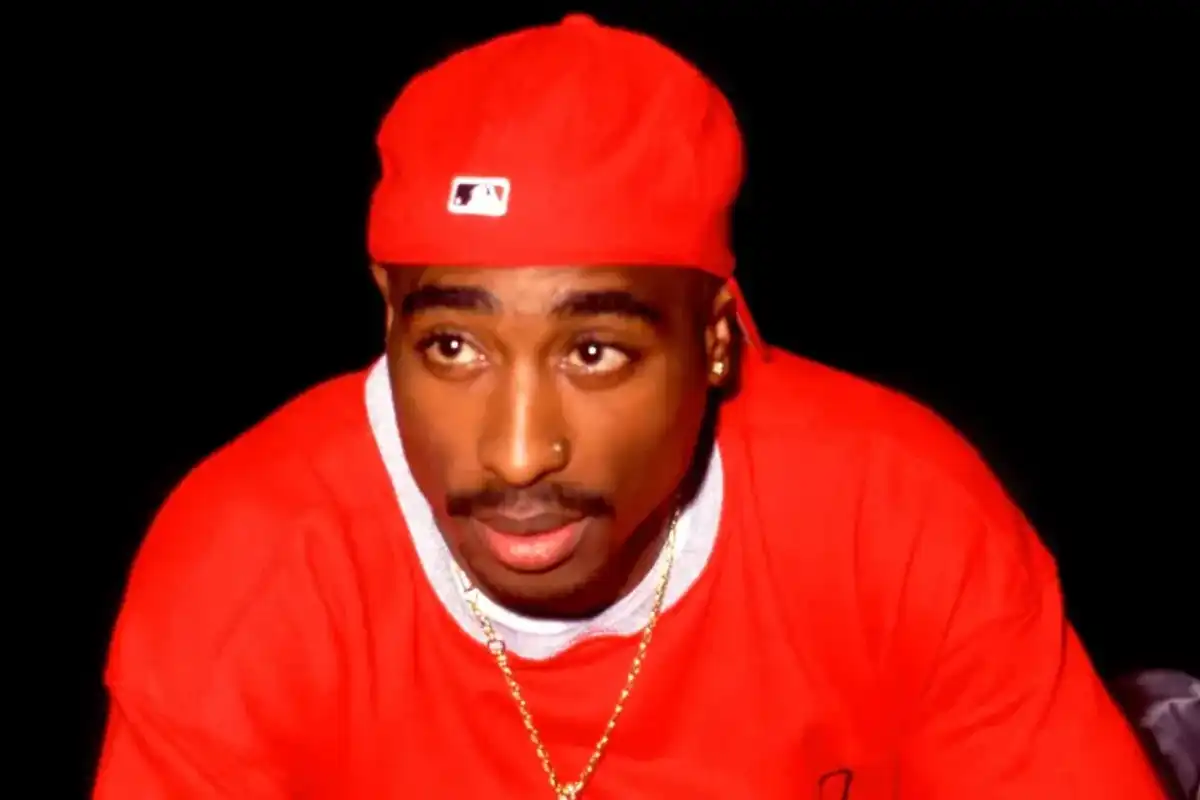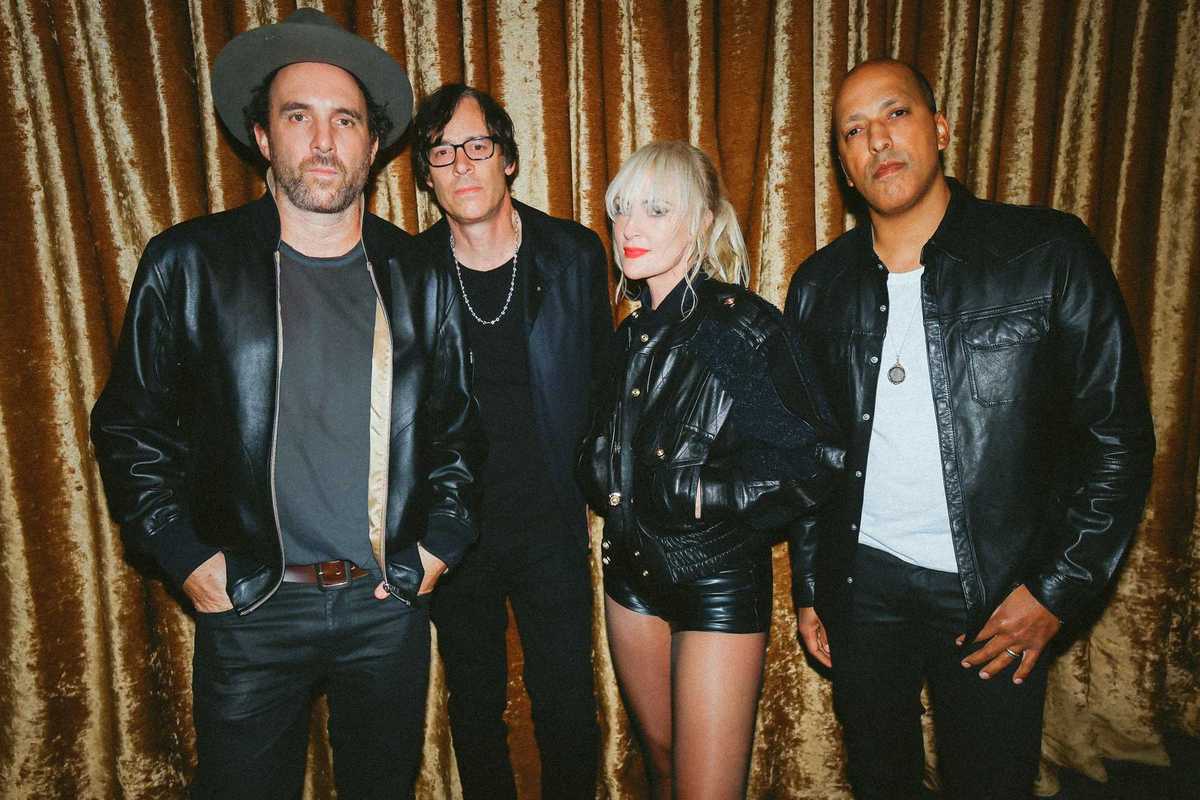Tupac Shakur’s Estate Threatens to Sue Drake Over Diss Track Featuring AI-Generated Tupac Voice
In a cease-and-desist letter to Drake obtained exclusively by Billboard, the late rapper's estate says it is "deeply dismayed" and would "never have given its approval."

Tupac Shakur poses for a portrait during the 1994 Source Awards on April 25, 1994 at the Paramount Theatre in New York.
Tupac Shakur’s estate is threatening to sue Drake over a recent diss track against Kendrick Lamar that featured an AI-generated version of the late rapper’s voice, calling it a “a flagrant violation” of the law and a “blatant abuse” of his legacy.
In a Wednesday cease-and-desist letter obtained exclusively by Billboard, litigator Howard King told Drake (Aubrey Drake Graham) that he must confirm that he will pull down his “Taylor Made Freestyle” in less than 24 hours or the estate would “pursue all of its legal remedies” against him.
“The Estate is deeply dismayed and disappointed by your unauthorized use of Tupac’s voice and personality,” King wrote in the letter. “Not only is the record a flagrant violation of Tupac’s publicity and the estate’s legal rights, it is also a blatant abuse of the legacy of one of the greatest hip-hop artists of all time. The Estate would never have given its approval for this use.”
Drake released “Taylor Made” on Friday, marking the latest chapter in a back-and-forth war of words between the Canadian rapper and Lamar. Beyond taking shots at both Kendrick and Taylor Swift, the track made headlines because of its prominent use of artificial intelligence technology to create fake verses from Tupac and Snoop Dogg – two West Coast legends idolized by the LA-based Lamar.
“Kendrick, we need ya, the West Coast savior/ Engraving your name in some hip-hop history,” the AI-generated Tupac raps in Drake’s song. “If you deal with this viciously/ You seem a little nervous about all the publicity.”
In Tuesday’s letter, Tupac’s estate warned Drake that the use of his voice clearly violated Tupac’s so-called publicity rights – the legal power to control how your image or likeness is used by others. And they took particular exception the use of his voice to take shots at Lamar.
“The unauthorized, equally dismaying use of Tupac’s voice against Kendrick Lamar, a good friend to the Estate who has given nothing but respect to Tupac and his legacy publicly and privately, compounds the insult,” King wrote.
A rep for Drake declined to comment on the demands of the Shakur estate.
It’s unclear if Snoop Dogg, whose voice was also featured on “Taylor Made,” is planning to raise similar legal objections to Drake’s track. On Saturday, he posted a video to social media in which he seemed to be learning of the song for the first time: “They did what? When? How? Are you sure?” A rep for Snoop Dogg did not return a request for comment.
The unauthorized use of voice cloning technology has become one of the music industry’s thorniest legal subjects, as AI-powered tools have made easier than ever to convincingly mimic real artists.
The issue exploded onto the scene last year, when an unknown artist named Ghostwriter released a track called “Heart On My Sleeve” that featured – ironically – fake verses from Drake’s voice. Since then, as voice-cloning has proliferated on the internet, industry groups, legal experts and lawmakers have wrangled over how best to crack down on it.
It’s not as simple as it might seem. Federal copyrights are difficult to directly apply, since cloned vocals usually feature new words and music that are distinct from existing copyrighted songs. The publicity rights cited by the estate are a better fit because they protect someone’s likeness itself, but they have historically been used to sue over advertisements, rather than over creative works like songs.
Faced with that legal uncertainty, the recording industry and top artists have pushed for new legislation to address the problem. Last month, Tennessee passed a statute called the ELVIS Act that aims to crack down on voice cloning by expanding the state’s publicity right laws beyond just advertisements. Lawmakers in Washington DC are also considering similar bills that would create new, broader publicity rights at a federal level.
In Wednesday’s letter, however, the estate said that California’s existing publicity right laws clearly outlaw something as blatant as Drake’s use of Tupac’s voice in “Taylor Made.” King argued that the song had caused “substantial economic and reputational harm” by creating the “false impression that the estate and Tupac promote or endorse the lyrics for the sound-alike.”
The estate also argued that the song was likely created using an AI model that violated the estate’s copyrights by “training” on existing recordings of Tupac’s music. The legality of using copyrighted “inputs” is another difficult legal issue that’s currently being tested in several closely-watched lawsuits against AI developers, including one filed by major music publishers.
“It is hard to believe that [Tupac’s record label]’s intellectual property was not scraped to create the fake Tupac AI on the Record,” King wrote, before demanding that Drake also provide “a detailed explanation for how the sound-alike was created and the persons or company that created it, including all recordings and other data ‘scraped’ or used.”
Wednesday’s letter also pointedly highlighted that Drake himself has made previous objections to the use of his own likeness by others. In addition to last year’s incident surrounding “Heart on My Sleeve” — which was quickly pulled down from the internet — King pointed to a lesser-known federal lawsuit in which Drake’s attorneys accused a website of using his image without authorization.
“The [“Taylor Made Freestyle”] has generated well more than one million streams at this point and has been widely reported in the general national press and popular entertainment websites and publications,” the estate wrote. “Without question, it is exponentially more serious and damaging than a picture of you with some other people on a low volume website.”
In its closing paragraphs, the letter demanded written confirmation by noon Pacific on Thursday that Drake’s representatives were “expeditiously taking all steps necessary to have it removed.”
“If you comply, the estate will consider whether an informal negotiation to resolve this matter makes sense,” King wrote. “If you do not comply, our client has authorized this firm to pursue all of its legal remedies including, but not limited to, an action for violation of … the estate’s copyright, publicity and personality rights and the resulting damages, injunctive relief, and punitive damages and attorneys’ fees.”

















